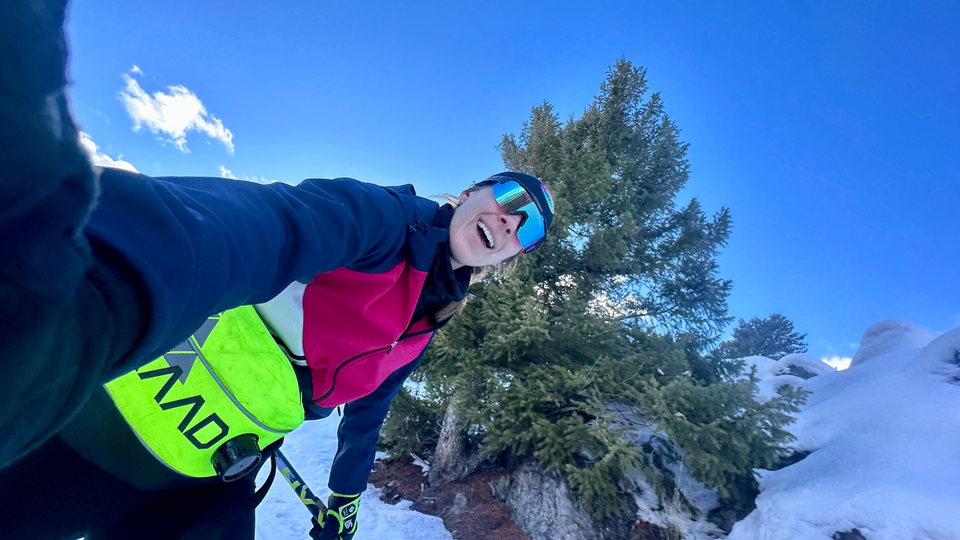Posted by Annika Landis on Jan 6th 2024
Trust The Proccess
Trust The Process
Hi All,
I hope everyone had a great holiday weekend!
I spent my holiday with my family in Idaho, enjoying time at home and some of the better skiing in the country right now. Even with a low snowpack here, we are lucky to be on snow, and have plenty of natural kilometers to ski. I have been taking full advantage, and must admit, am starting to feel a bit tired! But it is a good tired, and one that has filled me with a lot of joy!
As we head into the race season, which is already in full swing for some, I want to talk about goal setting and how to set effective goals when the future is uncertain or when we are taking on a new endeavor where we don’t know what to expect.
Goal setting is the act of laying out active steps with the desire of achieving a specific outcome. We often focus a lot of our attention on a big “outcome” goal (i.e. I want to win X race!). But, behind every big goal are smaller process goals that you set, reach, and surpass everyday, week or month. Those are the goals that I find the most important and the most effective at actually helping you achieve a bigger goal, whatever that may be.
Focus on process goals
How is a process goal different from a performance goal? I think of performance or outcome goals as being subjective to a personal standard of achievement. These goals are not entirely controllable since they can also be influenced by the actions of others. For example, say your performance goal is to be on the podium at X race. You can do everything perfectly to set yourself up to achieve that goal, but you can’t control who shows up to race, or who falls in front of you, or the weather conditions.
In contrast a process goal is something entirely controllable by YOU, that feeds into an overall performance goal. That is why I like focusing on process goals 90% of the time - reaching those goals is entirely up to me and I can feel confident that I am making progress towards my outcome goals even if it doesn’t always feel like it.
For example, one process goal for me is to drink and eat more during longer training sessions. I am not always very good at this, especially in the winter, but I know it is critical for me to stay well hydrated and fueled during a ski. Only I can control whether I eat and drink enough during a ski, and nobody else’s actions will prevent me from being able to accomplish that goal. Well, unless somebody steals the slice of apple tart from my waterbelt!
That is just one example of a process goal that, over time, adds up to measurable gains. Afterall, success is the result of small efforts repeated day in and day out. Here are just a few more examples of straightforward process goals:
- Increase sleep (ok not totally in your control if you have kids or work, etc… but still a process goal)
- Eat more during and after training
- Wax skis after every few training sessions
- Stretch after training
The list could go on and on and on, but I generally sort my process goals into a few categories of (1) Pre Training/Race [fueling, hydration, sleep, gear maintenance, mindset, preparation…]
(2) During Training/Race [fueling, hydration, effort quality, mindset, execution of plan…]
(3) After Training/Race [fueling, hydration, recovery, reflection, learning…]
(4) Mind and Body Wellness [taking breaks, stretching/activation, family/friends time, relaxation…]
It can seem like a lot to make a bunch of process goals, but they are so important for keeping you accountable everyday to the promise you made yourself to work towards a big goal. For me, they are important because even if I don’t reach my performance goals, if I can look back and say I achieved every process goal I set for myself, then I can realistically say that I did everything I could to set myself up for success.
Be confident in your process, and the results will come.
Lastly, here are some general things I like to keep in mind when I set goals.
Leave room for modification
Goal should be clear and tangible, but also fluid and adaptable. If you find yourself reaching all your goals early in the season, set bigger ones. Conversely, if you are falling short, consider adjusting your expectations or modifying your process.
Give yourself permission to fail
If your goals don’t scare you a little, they aren’t big enough. They shouldn’t be so big that they are impossible, but they should be big enough that even though achieving them is entirely possible, it is also entirely possible that you don’t. All of my most powerful learning experiences have come from falling short of a big goal, and learning far more from a so-called “failure” than I would have otherwise.
Make your goals visible
I like to write my goals out on a piece of paper and tape them up someplace that I see them everyday. That way, when I am grouchy and unmotivated about waking up early to do a certain workout, I can look at the goals I made for myself and remember what it is I’m working towards.
So with that in mind, happy goal setting! I look forward to all of us working towards our unique and collective goals on the, hopefully soon to be snowy trails!
Annika

